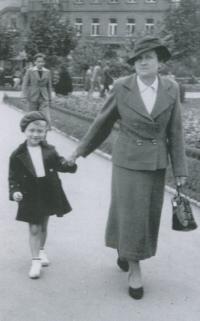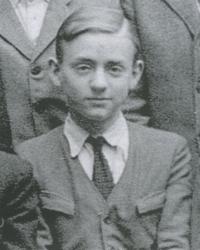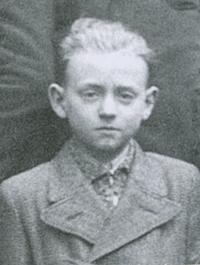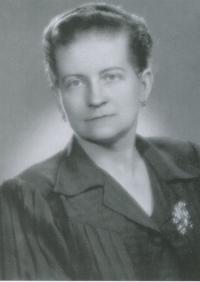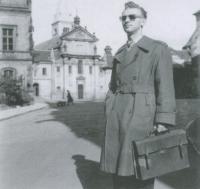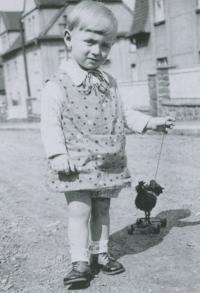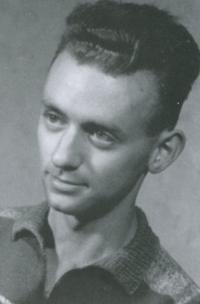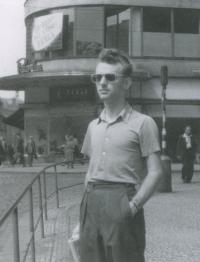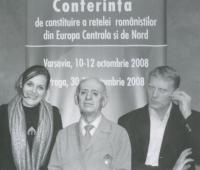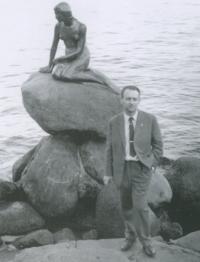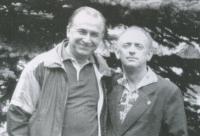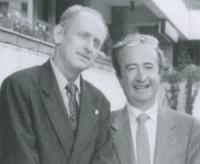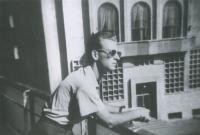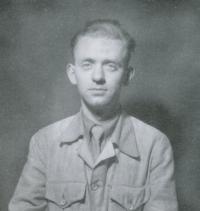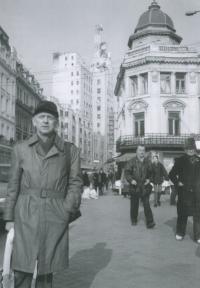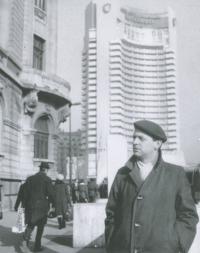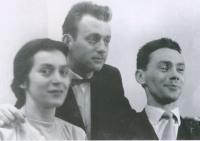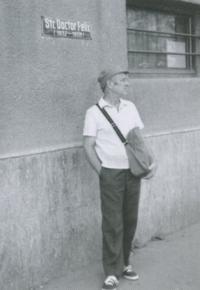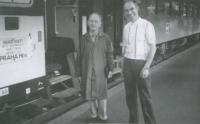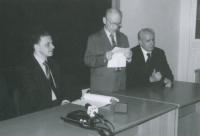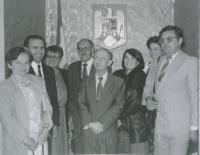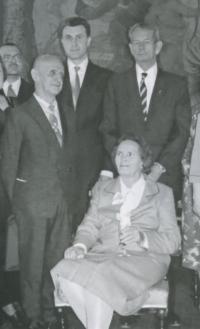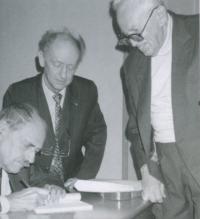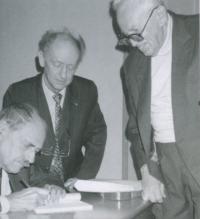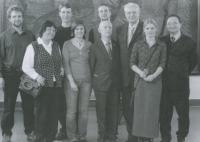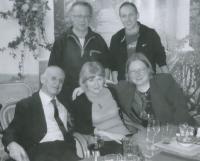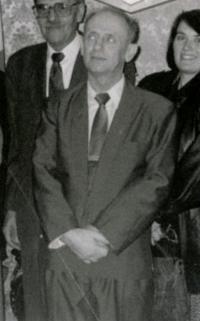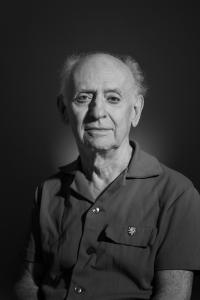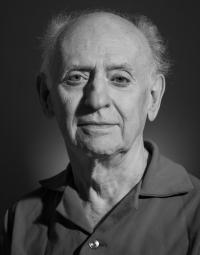Don’t talk like that, papa, or I will have to denounce you!

Download image
Jiří Felix was born on February 21, 1931 in Prague. He grew up in Most, where he witnessed as a son of a primary school teacher, acts of German nationalism toward Czech school kids. Apart from publicly glorifying Hitler, German children threw stones on their Czech counterparts. After the Munich Treaty, he and his mother were expelled from Most. His mother was appointed to Trhová Kamenice in Českomoravska vrchovina. After the German invasion on March 15, 1939 and the abolition of a Czech school there, she managed thanks to her relatives, brothers Patočkas, to move to Beroun and consequently to Prague. Part of his family was executed here after the assassination of Reinhard Heydrich. He was a high school student at the time of the February 1948 coup, where he saw the rise in power of communist ideology; communist classmates were mocking non-communists, saying that the latters’ future depends on their reports. In 1951, he was accepted to the department of Romanic studies at the Faculty of Arts, Charles University. From the mid-1950s, he has regularly gone to Romania for study stays, where he received his doctoral diploma as the first Czech to do so. After his arrival to Prague in 1967, he became an internal employee of his home department. He is considered one of the most important Czech Romanic scientists. Jiří Felix is also a direct witness and participant of the evolution of the Faculty of Arts from the 1950s until today. In the 50s, he experienced the climate of fear, where people were afraid to voice their opinions, where students were expelled for the slightest signs of ‘ideological unreliability’, where some classmates were denouncing their colleagues and where some professors had enough courage to struggle for the least level of decency and science to be maintained on the faculty. After the Soviet occupation, he saw the normalization purges that caused, on the faculty as well as in the society as a whole, ‘a total demoralization of the public life’.
